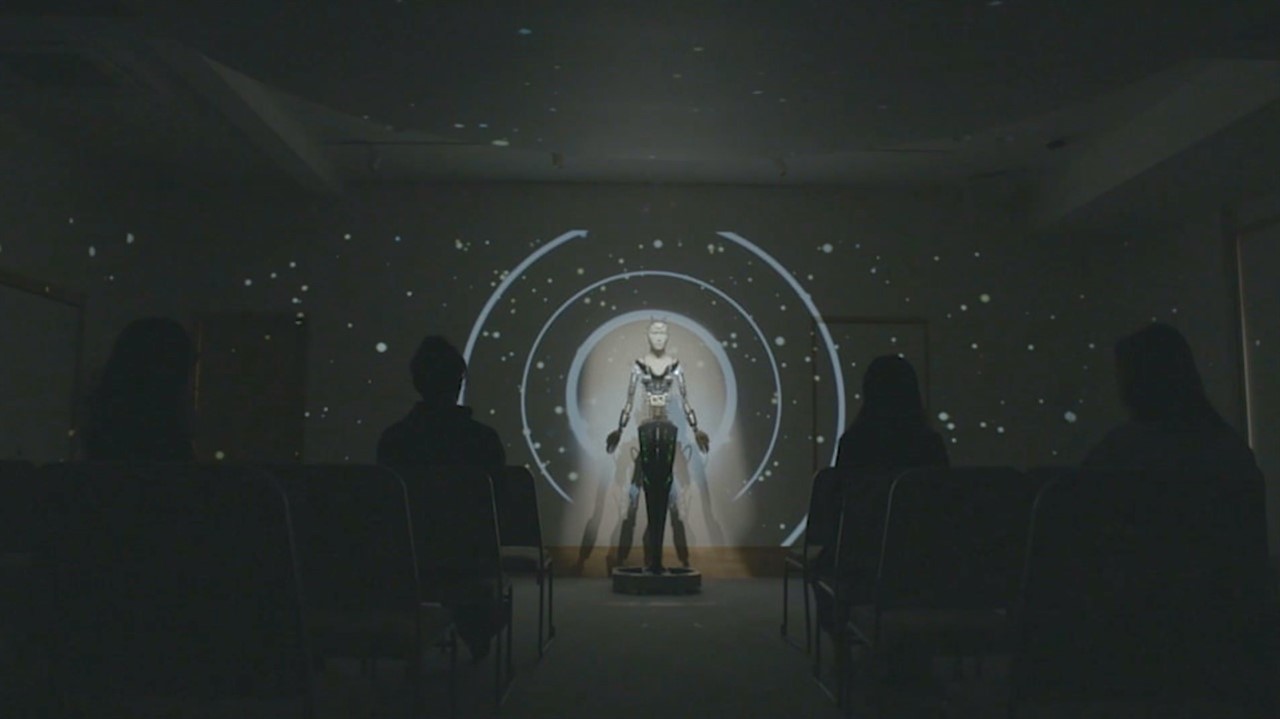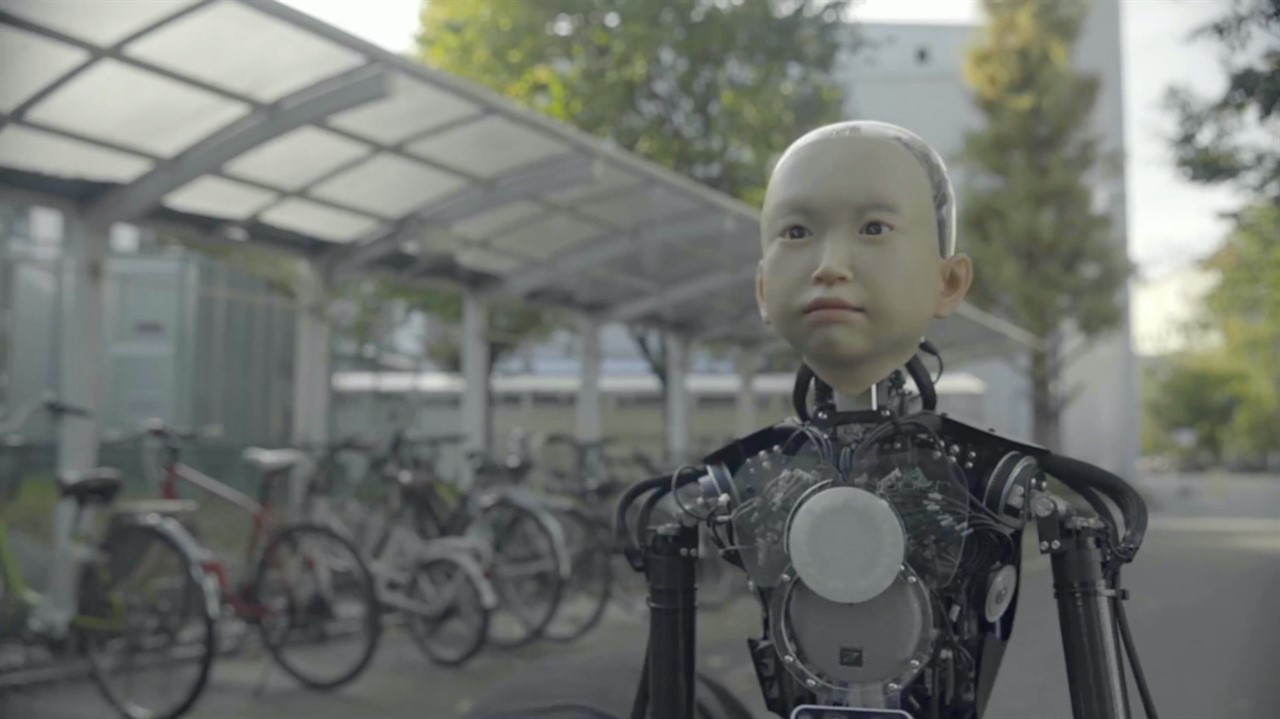|
|
||
|
Pro Tools
FILMFESTIVALS | 24/7 world wide coverageWelcome ! Enjoy the best of both worlds: Film & Festival News, exploring the best of the film festivals community. Launched in 1995, relentlessly connecting films to festivals, documenting and promoting festivals worldwide. Working on an upgrade soon. For collaboration, editorial contributions, or publicity, please send us an email here. User login |
A.RTIFICAL I.MMORTALITY , Canada, Ann Shin, 2021, Hot Docs
As science advances more rapidly the expectations of what it can do for humanity is expanding as well. Yet at the same time, control over the consequences of this development seems to elude mankind. There is a steadily growing gap between the current state of knowledge and the need for knowledge necessary to master what we now know. Put differently, the more we know the less we know or the greater the knowledge gap. Over the last decade, scientists have been able to join and grow living nerve and heart tissues in nanowire meshes, discovered the ability of cells to rewire their adaptive communication networks, and inserted stem cells in the embryos of monkeys last year. Ann Shin’s 2021 Hot Doc’s opening film A.RTIFICIAL I.MMORTALITY (AI) sets a perfect frame for this knowledge dilemma. Covering the themes of artificial intelligence, the desire for immortality, digital replication of our selves through the growing creation of avatars, biomechanical robotics through human-machine mergers, and the ethical problems we face in applying and further developing the required digital technologies Ann Shin broadens the larger scientific and public debate on the myriad of challenges we face. Shin succeeds in raising ever more questions by interviewing experts in the field. Deepak Chopra is firmly committed to the “sunny side” of these developments. A few, like theorist Douglas Rushkoff, espouse doubts from a social science perspective about the basis of the optimism. Neuroscientists argue that the brain and its cognitive, emotional, and behavioral processes are too complex to ever be digitally emulated or re-constructed. These critics would dispute that consciousness can be transferred to a digital medium. There are small groups, lay and religious persons, who embrace the notion of creating mindfiles, digitizing their memories using whatever visual or oral records they have, and attempting to “clone” themselves in hopes of retaining part of themselves forever. Death would become optional because their digital self-constructs can live forever disconnected from the body and consciousness. Exhaustive constant data harvesting happens without an individual’s control and is most often surrendered to Amazon, Facebook, Google, and social media corporations for their own commercial purposes. They shape models of artificial general intelligences. There are also organizations like the Terasem Movement Foundation which, for a fee, can help the consumer create a mindfile as well as a biological one, freezing his or her cells for possible future revivification. There is also a transhumanism movement, which aims to overcome human limitations and relocate us outside ourselves, achieved by progressive digitization as the vehicle transcending death.
From the discussion with Deepak Chopra and his avatar, Chopra’s recreation in the human form, subsequent encounters with Ann Shin’s avatar, her children’s session with her avatar, and exposure to other “speaking” mobile robots, it is readily evident that humankind’s trip into the personal identity emulation future is far from complete. Some fundamental limitations have not yet been overcome. An avatar can provide responses from massive digitals memory, and if prompted initiate actions from his programmed reactions. The avatar cannot spontaneously create actions because there is no ego nor motivation stemming from the subconsciousness because the avatar does not have them. Thus far, an avatar cannot create an identity but only can replicate one as programmed. Avatars cannot engage in communication beyond the programmed stimulus response or reaction process. This suspends basic human communication. In this complicated process, new knowledge and insights are negotiated and generated by exchanging and responding to fragments of meaning. The process of reflection or reflective responses is severely restrained, with the avatar remaining incapable of independent thought or the shaping of memory. All our minds and personal social universes set the parameters for constant reorganization of our memory by adding or deleting sections. In that sense, Ann Shin’s skepticism about the digital immortality project, despite rapid scientific advances, is well founded.
New York, Claus Mueller filmexchange@gmail.com
19.05.2021 | Claus Mueller's blog Cat. : Ann Shin Artificial Intelligence Clones Machine Learning Overcoming Death FILM
|
LinksThe Bulletin Board > The Bulletin Board Blog Following News Interview with EFM (Berlin) Director
Interview with IFTA Chairman (AFM)
Interview with Cannes Marche du Film Director
Filmfestivals.com dailies live coverage from > Live from India
Useful links for the indies: > Big files transfer
+ SUBSCRIBE to the weekly Newsletter Deals+ Special offers and discounts from filmfestivals.com Selected fun offers
> Bonus Casino
About Claus MuellerThe EditorUser contributions |

























